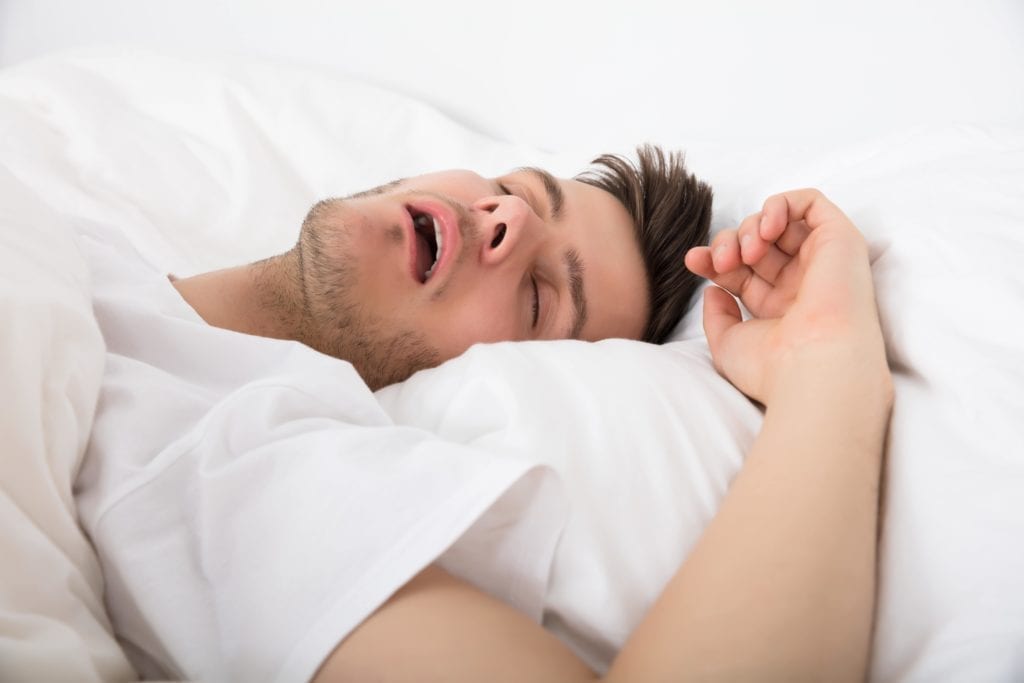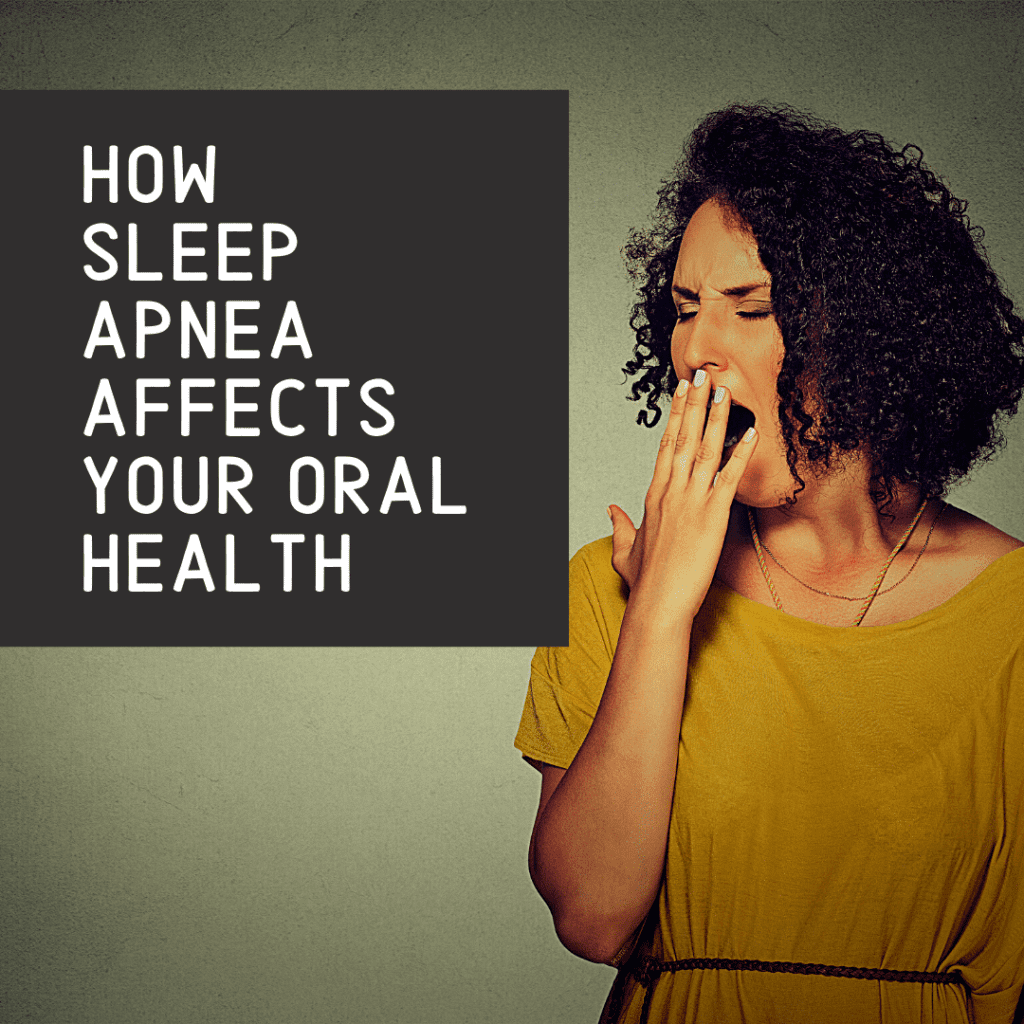Did you know that your sleeping habits can impact your oral health? More specifically, your oral health can suffer if you have sleep apnea. While many people tend to focus on the sleeping problems associated with sleep apnea, not as many people realize the potential threat it can have on their oral health. Therefore, it is important to understand how sleep apnea can affect your oral health in order to take steps to minimize its threat to your oral health.
For starters, we must have an understanding on the basics of sleep apnea. Sleep apnea is a medical disorder characterized by breathing problems that occur while sleeping. There are three different types, but obstructive sleep apnea (OSA) is by far the most common. The other two types of sleep apnea are central sleep apnea and complex sleep apnea. In a person with OSA, the upper airway can either narrow or collapse while sleeping, which impairs normal breathing. In some cases, this can cause breathing to temporarily stop for a few seconds to a few minutes at a time.
As you can probably guess, not being able to breath properly has a negative impact on sleep quality. As a result, many people with sleep apnea experience daytime sleepiness, physical and mental fatigue, and restlessness. While these are the primary ways that sleep apnea can affect you, it can also affect you in other ways that can be detrimental to your oral health. Here are a few oral health problems that sleep apnea can cause:
Dry Mouth

The primary problem in people with sleep apnea is that they cannot get enough air due to a narrow or collapsing airway. As a result, they usually end up snoring with their mouth open or gasping for air. Although saliva production is already decreased at night, inhaling through the mouth further dries out the mouth and throat. This is problematic because saliva is necessary to neutralize the harmful acids produced by bacteria. Regularly suffering from dry mouth can drastically increase the risk of tooth decay and gum disease. Drying the throat can also cause the throat to become sore and irritated.
Teeth Grinding
Another oral health problem that is commonly seen in individuals with sleep apnea is teeth grinding. Researchers believe that people with sleep apnea grind their teeth for one of two reasons. First because teeth grinding can help open the airway. Secondly, teeth grinding can also promote saliva production in order to lubricate the mouth and throat. However, the exact connection between teeth grinding and sleep apnea is still unclear.
TMD
Temporomandibular joint disorder (TMD) occurs when the jaw joint is regularly exposed to excess strain. In cases where a person with sleep apnea grinds their teeth, TMD can eventually develop as a result of the grinding motion. Many people with sleep apnea also push their lower jaw forward regularly to open the airway. The stress exerted on the jaw joint from pushing the lower jaw forward can also lead to TMD.
As you can see, sleep apnea affects more than just your sleep patterns. The best way to improve the quality of your sleep and your oral health is to manage your sleep apnea. While your dentist may suspect sleep apnea, they will likely refer you to a medical doctor for further testing and a diagnosis. In the meantime, they may also recommend wearing a nightguard to protect your teeth and help keep your airway open.

Dr. Admar holds dual certificates — a Bachelor of Dental Surgery (BDS) in 2010 from India and a Doctor of Dental Surgery (DDS) in 2014 from Canada. He is now a full time practicing dentist in Kamloops where he provides a variety of services. Dr. Admar spends hundreds of hours in continued dental education to stay up to date in cosmetic and implant dentistry and he has achieved several advanced qualifications.


